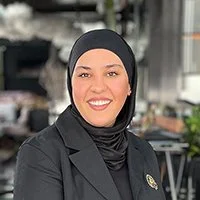The Weight of Words: Trauma-Informed Language Work in Deportation Systems
As a language practitioner and activist at Respond Crisis Translation, I often find myself standing between bureaucratic systems and the humanity buried beneath them. Words – or the absence of the right words – can carry life or death consequences. Over time, I have learned that words are never impartial.
In migration systems, language can determine whether someone finds protection, or is sent back into danger. When the people we work with are deeply traumatized, language work requires more than accuracy. It requires sensitivity, care, and awareness, as every question, every phrase, can reopen wounds or trigger old trauma.
I have worked recently with an individual from Gaza who had fled an open-air prison of fear, violence, death only to end up in ICE custody. On his journey to the U.S., he endured kidnapping, repeated border rejections, and the constant erasure of his identity as a Gazan-Palestinian. By the time I worked with him, he was traumatized and exhausted, his trust in institutions shattered.
As I began interpreting, I noticed that my job was not only limited to conveying his words from a language to another but to create a space where he could speak at all. This required patience: giving him time, asking gently, and accepting silence or even aggression when his memories became unbearable. Trauma-informed language work is about recognizing that survival stories are always carried in fragile voices.
If extracting information as a language activist from a traumatized person is difficult, transmitting information can be even harder. This Gazan man longed for one simple message: “طلعوني من هون” and, “رجعوني على بلدي which translate into “release me from detention” and “bring me back home”. Conveying that part to the attorney was easy and straightforward, even though they revealed the tragic paradox of wanting to return to the very place he had fled.
The real struggle came when I had to deliver the attorney’s response: “you cannot return to Gaza”. This was not merely a translation, but the transmission of a devastating truth and the collapse of hope. In the U.S. immigration system, Palestine – of which Gaza is a part – is not recognized as a state. Palestinians are classified as stateless.
In that moment, I felt how deeply language practitioners are woven into the emotional landscape of migration. We do not simply carry words across languages; we carry realities that can break a person, reopen old wounds, and extinguish fragile hopes of return – even to the very place they once risked everything to escape.
Trauma-informed interpreting means walking a fine line: being precise yet compassionate, carrying someone’s story without amplifying or belittling their pain. It is exhausting, not because of the words themselves, but because of the human truths they contain. We are asked to be accurate, but also humane; invisible, yet deeply and present. This double burden is rarely acknowledged, yet it shapes every encounter.
While in detention, my client resorted to a hunger strike. His body and his silence became his language and voice, his refusal of food was a refusal of invisibility, an act of resistance to systemic oppression. Interpreting his story, I realized that trauma-informed language work also means recognizing the many forms in which people communicate: not only through speech, but also through silences, refusal, and gestures of despair – and responding in ways that preserved his agency and humanity. Interpreters must learn to listen to what is unsaid, to hold space for the body as text.
Trauma-informed language activism is more than a professional skill, it is a responsibility. We stand at the intersection of law, survival, and dignity. Our role is to make voices legible to systems that often deny their existence, without stripping them of humanity in the process. And while our role may be overlooked, the weight of our words reminds us that language can wound, but it can also protect and heal.
By Ayah Najadat
Freelance interpreter and language activist, previously led the Arabic Team at Respond Crisis Translation

